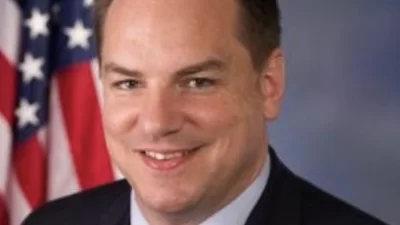Dear Inspector General George:
We are writing to ask you to investigate a very serious allegation that Administration employees may have improperly accessed and disclosed confidential taxpayer information. As you know, section 6103 of the Internal Revenue Code protects the privacy of federal tax returns and return information. This law was enacted as a result of the use of tax information for political gain during the Watergate scandal.
Congress sent a very clear message with the enactment of section 6103 that taxpayer privacy was extremely important. The Internal Revenue Service (IRS) Restructuring and Reform Act of 1998 (RRA 98) imposed further sanctions on IRS and Treasury employees for accessing tax information without reason - even if such information was not further disclosed. Penalties for unauthorized access or disclosure of returns and return information range from monetary penalties to termination of employment to imprisonment.
Chairmen of either the Senate Committee on Finance or the House Ways and Means Committee are the only Members of Congress able to receive information protected by section 6103 and that is only upon written request in which specific individuals who may view the sensitive information are identified to the IRS. However, these Members and their staff are subject to the same sanctions for unauthorized access or disclosure of returns and return information.
Similarly, your office and the Government Accountability Office (GAO) are also subject to the same sanctions. In fact, we have been told repeatedly that TIGTA, GAO, and even IRS reports that summarize tax information are in violation of section 6103 if they include aggregate data on so few taxpayers that the taxpayers may be easily identified.
Thus, we are very concerned about a statement made by Administration officials in an Aug. 27, 2010, press briefing regarding the President’s Economic Recovery Board’s (PERAB) report on corporate tax reform. This statement, as reported by The Wall Street Journal, comments on the legal structure of Koch Industries, Inc. (Koch) and its impact on the group’s tax liability. While Koch’s website indicates some of the Koch companies are limited liability companies (LLC) or limited partnerships, there is no indication that Koch itself is a Subchapter S Corporation, which is one type of flow through entity, or a Subchapter C corporation. In addition, an LLC can choose to be taxed as Subchapter C corporation.
Thus, the statement that Koch is a pass-through entity implies direct knowledge of Koch’s legal and tax status, which would appear to be a violation of section 6103. Alternatively, if the statement was based on speculation, it raises the question of whether the Administration speculating about any specific taxpayer’s liability is appropriate.
The statement is also troubling because it was made shortly after the President highlighted the advocacy work of certain tax-exempt organizations funded by Koch Industries, Inc. and its owners. The work of these tax-exempt organizations, while opposing the Administration’s policies, appears to be in compliance with the tax laws. However, we are concerned that the PERAB’s statement singling out Koch Industries, Inc. so soon after the President’s statement was politically motivated.
As a result, we ask that you obtain and review a transcript of the Aug. 27, 2010, press briefing to determine the basis for the Administrations employees’ statements and review the PERAB’s work in preparing its report on corporate tax reform. In particular, we ask you to address the following questions.
1) Did Administration employees, including PERAB employees, have access to tax returns and return information in compiling the PERAB report?
2) If yes, how many companies’ tax returns did the PERAB employees review and did they follow the procedures prescribed under the regulations governing section 6103 for accessing and protecting taxpayer information?
3) Did Administration employees, including PERAB employees, violate section 6103 when they discussed the tax status of Koch Industries, Inc. and its related companies?
4) If violations of 6103 did not occur, what was the basis for the statement regarding Koch’s legal and tax status and was the statement appropriate?
We appreciate your prompt attention to this matter.
Sincerely,
Chuck Grassley Jon Kyl
Ranking Member United States Senator
Jim Bunning Pat Roberts
United States Senator United States Senator
Michael B. Enzi John Cornyn
United States Senator United States Senator
John Ensign
United States Senator









